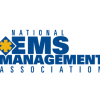Did you know there is a father of air conditioning? Willis Carrier patented the idea in 1906 and drove its practical application. His formula for defining the relationship between humidity, temperature and the dewpoint is still used today. (We don’t think about it very much, but air conditioning revolutionized our way of life, affecting everything from printing presses to meat processing to where people live. Being the “father of cool” is a big deal.)
Henry Ford is called the father of mass production, Alan Turing the father of computer science. And on a whole other level, George Washington is the father of our country. There are a lot of “fathers” out there—but what does it take to earn that moniker?
I’m thinking about this now because as this issue goes to press, I’m finalizing my inaugural James O. Page Memorial Lecture for the National Association of EMS Physicians conference. When Kevin Mackey, M.D., the program chair, called to tell me he wanted the keynote to recognize Jim’s legacy, I thought that was very fitting. When he asked me to give the first lecture, I immediately began to wonder how I could ever capture Jim’s life in 50 minutes.
I worked closely with Jim for two decades as his partner in the creation and running of the Journal of Emergency Medical Services and its many spin-offs. (Jim died of sudden cardiac arrest in 2004 at the age of 67.) I, like many others, have called him the “father of modern EMS” as a way to quickly summarize the impact he had on the profession as a fire chief, attorney, publisher, television adviser, educator and advocate. But what of the many other EMS pioneers? Deke Farrington, Frank Pantridge, Eugene Nagel, Michael Criley, Leonard Cobb and Nancy Caroline, to name a few, all come to mind.
As I did some more research into this topic, I realized there are several paths to “fatherhood.” For instance, you could invent a game-changer yourself, or you could take someone else’s great idea and foster it in such a way that it becomes widely accepted. In all cases, the father exercises an unprecedented influence that sets him or her apart. In my research, I also found that not all fathers are equally beloved—they may have had great vision, but they weren’t necessarily people you wanted to spend a lot of time with.
In his lifetime, Jim wrote six books and some 400 articles and gave more than 800 talks, a few of them taped. In preparing for the lecture, I watched several videos that I obtained from the James O. Page Collection at the UCLA library, where Jim’s papers are archived. Jim liked to weave a favorite quote into his talks: “One measure of the civilization of any society is how it treats its weakest members—the poor, the old, the infirm.”
In a time when brutality is all around, he spoke of how EMTs and paramedics have the opportunity to help our nation live up to our aspirations for greatness by the way they treat all patients, including those on the margins. Through his writing, speeches and by example, he lifted and inspired an entire generation to do better than anyone thought possible.
I spent many hours re-reading Jim’s works, viewing his videos and perusing correspondence from his archives. It was good to spend time again with the father of modern EMS.
Keith Griffiths can be reached at publisher@emergencybestpractices.com.












